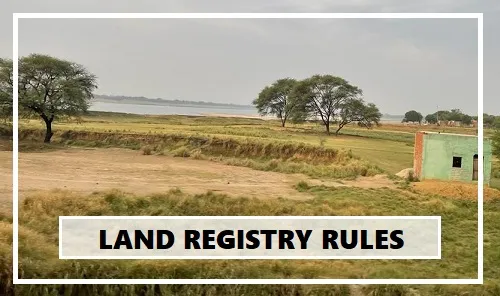Many people are interested in purchasing land in Himachal Pradesh due to its natural beauty and the recent Congress party’s majority win in the assembly elections.
However, there are legal considerations that one must understand before making such a decision.
Understanding the Tenancy Act
In Himachal Pradesh, there is a law called the Tenancy Act that governs land purchases.
According to section 118 of this act, individuals who are not citizens of Himachal Pradesh are generally prohibited from buying land in the state. However, there are certain exceptions to this rule.
Buying Non-Agricultural Land
If you are from outside Himachal Pradesh and wish to buy land in the state, you can do so by obtaining permission from the state government.
Under section 38A(3) of the Tenancy and Land Reforms Rules 1975, you are required to inform the state government about the purpose of your land purchase.
The government will consider your request and grant permission for purchasing land up to 500 square meters.
It’s important to note that agricultural land cannot be purchased, which means farming is not allowed for non-Himachal residents.
While owning land in Himachal Pradesh may be a dream for many due to its natural beauty, it’s essential to be aware of the legal restrictions.
Non-Himachal residents can only purchase non-agricultural land after obtaining permission from the state government.
It’s advisable to thoroughly understand the provisions of the Tenancy Act and follow the necessary procedures before proceeding with any land purchase in the state.
Land holds great value for individuals as it is often considered the most significant and expensive purchase in one’s life.
People consider it a valuable asset, along with bank balances, gold-silver, and business profits. Land is preferred by many as an investment option due to its long-term value and potential returns.
Process of Land Registration in India
To purchase land, it is essential to go through the process of land registration. The registration process involves preparing a Sale Deed, which is a legal agreement between the buyer and the seller.
After preparing the deed, the registration is done online by submitting the necessary documents and photos of the buyer and seller.
A registration number is provided, and the buyer must then visit the registry office with the sale deed.
The registrars review the documents and register the deed. The original sale deed is returned on the same day, and if needed, it can also be collected the next day.
Different Types of Deeds for Land Transfer
There are several types of deeds used for land transfer:
1. Sale Deed (Bainama): This is the most common deed used for buying and selling land.
It is a legal agreement between the buyer and seller, containing all the relevant information, such as the details of the parties involved, land description, map, witnesses, and stamps. Through the sale deed, the seller transfers the ownership of the land to the buyer.
2. Gift Deed: In a gift deed, the owner of the land gives the ownership of the land as a gift to someone else. This deed is used for transferring land through gifting.
3. Will: A will is a legal document used to express a person’s wishes regarding the distribution of their property after their demise. A will can be used to transfer land to someone without the need for a separate purchase transaction.
4. Power of Attorney: This document grants authority to another person to act on behalf of the landowner in matters of property transfer.
Benefits of Making an Agreement
Before preparing the sale deed, there is an option to create an agreement. This agreement helps to streamline the process and offers benefits to both the buyer and seller.
The agreement outlines the terms and conditions of the land sale, with the buyer agreeing to purchase and the seller agreeing to sell.
A stamp duty, usually 2.5 percent of the market value of the land, is paid for the agreement.
The stamps purchased for the agreement are then adjusted during the registration process.
Registration Process
The registration process starts by determining the market value of the land. Stamp papers are purchased, and the deed is typed on these papers.
The stamp duty serves as proof of ownership. During the registration, all necessary information, including details of the current owner and the buyer, is recorded.
Two witnesses are required, and their identification documents are included in the deed.
After completing the registration, a slip is received from the registrar’s office, which signifies the completion of the registration process. It is important to keep this slip safely as proof of registration.
Our Thoughts
In this article we have discussed in details about Tenancy Act, Land Registration Act and other requirements to register a land in India. We have also told you why it is not possible to easily register a land in the Indian state of Himachal Pradesh.
Whenever you are buying land, you must follow the land registration process properly. Now adays entire process is digital, so there is very less chance of fraud but there still is.
Make sure to keep all the documents handy, when you go to registrar’s office. Have you faced any problem during land registration in India. Let us know in comments below.
